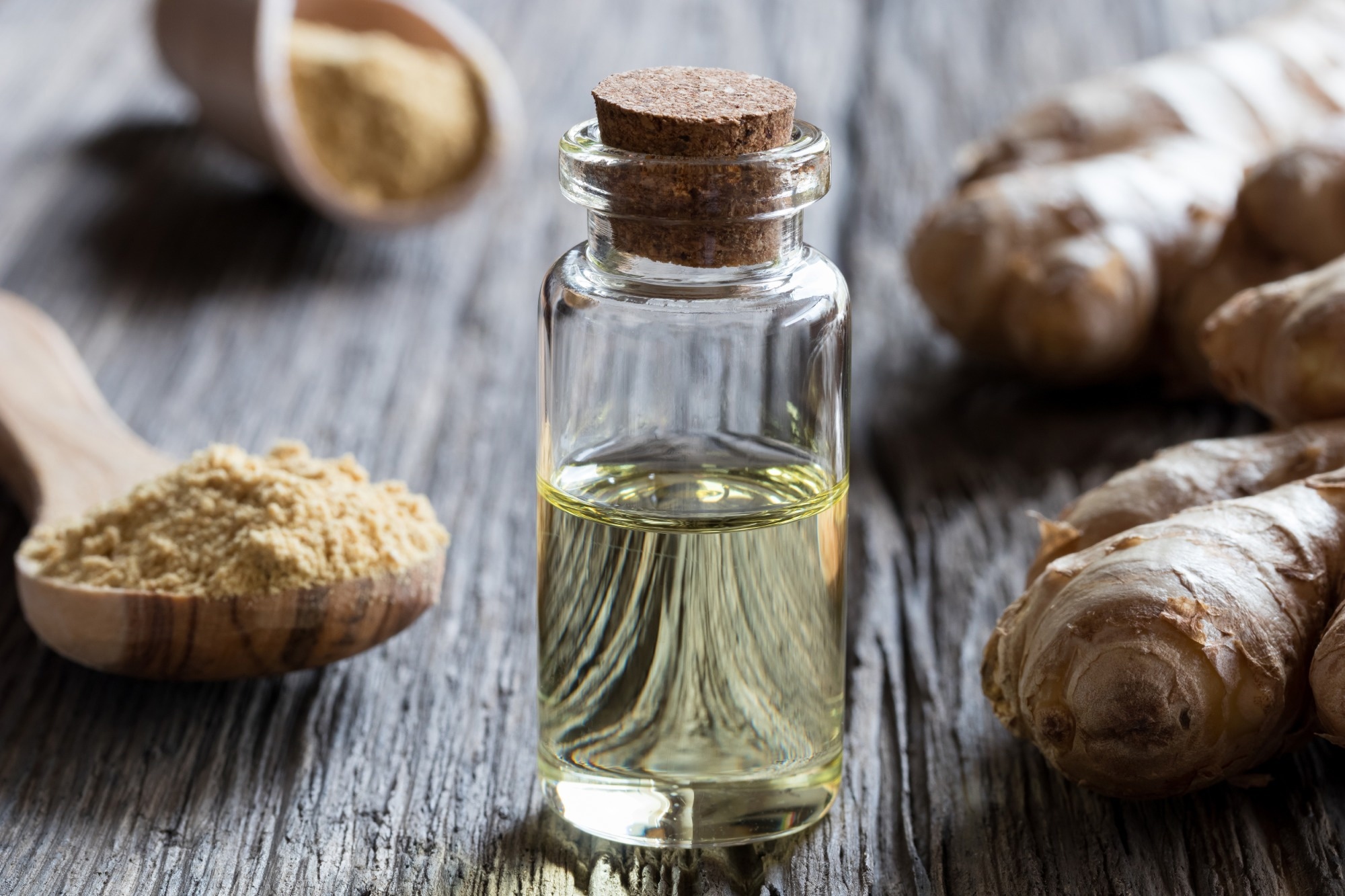Non-alcoholic steatohepatitis (NASH), which is a type of non-alcoholic fatty liver disease (NAFLD), arises due to hepatic fat accumulation, which subsequently leads to inflammatory damage to the liver. Untreated NASH may progress to liver cirrhosis and liver cancer.
 Study: Ginger essential oil prevents NASH progression by blocking the NLRP3 inflammasome and remodeling the gut microbiota-LPS-TLR4 pathway. Image Credit: Madeleine Steinbach / Shutterstock.com
Study: Ginger essential oil prevents NASH progression by blocking the NLRP3 inflammasome and remodeling the gut microbiota-LPS-TLR4 pathway. Image Credit: Madeleine Steinbach / Shutterstock.com

 *Important notice: Research Square publishes preliminary scientific reports that are not peer-reviewed and, therefore, should not be regarded as conclusive, guide clinical practice/health-related behavior, or treated as established information.
*Important notice: Research Square publishes preliminary scientific reports that are not peer-reviewed and, therefore, should not be regarded as conclusive, guide clinical practice/health-related behavior, or treated as established information.
Introduction
NAFLD is the most common chronic liver condition worldwide. NASH is characterized by at least 5% fat deposition in the liver and is often accompanied by inflammatory and hepatocyte changes, as well as hepatic fibrosis in some cases.
NASH is affected by dietary habits and the gut microbiota. A high-fat diet (HFD) results in an increased concentration of free fatty acids in the portal circulation, thereby stimulating the synthesis of triglycerides and cholesterol and their deposition within the liver.
High levels of free fatty acids in the liver promote the production of reactive oxygen species (ROS) causing oxidative stress. Oxidative stress activates the NLR family pyrin domain-containing 3 (NLRPR3) inflammasome, which ultimately leads to pro-inflammatory cytokine signaling, liver inflammation, and cell death.
HFD also alters the composition of the gut microbiome. This can subsequently cause gut dysbiosis, thereby increasing the susceptibility of the gastrointestinal tract to pathogenic invasion.
Furthermore, HFD increases permeability of the intestinal epithelial barrier, thereby allowing pathogens to enter portal and systemic circulation. These present pathogen-associated molecular patterns (PAMPs) to the liver, including lipopolysaccharides (LPS) from gram-negative bacteria.
The metabolites and toxins produced by gut bacteria in the dysbiotic condition activate Toll-like receptors (TLRs) in many liver cell types to produce inflammation. LPS activates TLR4 pathways, which subsequently causes the release of inflammatory cytokines like tumor necrosis factor (TNF)-α, interleukin 6 (IL-6), and IL-1β.
Several drugs are currently available to treat NASH; however, alternative therapies may include dietary and herbal interventions. In the current study, researchers explore the effects of GEO in mice with NASH secondary to LPS injection when fed a HFD based on palm oil.
What did the study show?
Feeding LPS-exposed mice with palm-oil-based HFD (PL group) resulted in obesity and metabolic dysfunction. However, GEO supplementation at medium to high doses significantly reduced lipid levels prevented fat accumulation in the liver, and prevented obesity.
The PL group also exhibited higher alanine aminotransferase (ALT) levels, which is a marker of liver damage, whereas AST levels were comparable to those in the control group. GEO supplementation at moderate to high doses reduced ALT levels as compared to the PL group.
The liver weight was higher in the PL group and did not decrease with GEO supplementation. Nevertheless, GEO supplementation was associated with reduced levels of liver cytokines that promote inflammation.
While histological analysis showed that about 88% of PL mice developed NASH, this was reduced to 50% with low doses of GEO. Conversely, NASH was reversed completely by moderate to high doses of GEO. The most important mechanism by which GEO reduced liver inflammation appeared to be by reducing liver cell ballooning.
PL mice exhibited increased cytochrome P450 Family 2 Subfamily E Member 1 (CYP2E1) expression, which was reduced following GEO administration. While PL mice exhibited lower levels of the antioxidant enzyme catalase, glutathione reductase, and glutathione, these enzyme levels significantly increased following GEO supplementation. Likewise, these effects were more notable with medium to high doses of GEO, thus indicating the potential ability of GEO to suppress oxidative stress and the accompanying inflammation in NASH induced by HFD.
Existing liver inflammation was modulated following GEO administration by its action on the NLRPR3 inflammasome, as demonstrated by the reduced production of pro-inflammatory cytokines.
GEO also elicited favorable effects on the gut microbiota, as demonstrated by an increased abundance of beneficial microbes following GEO treatment while simultaneously suppressing microorganisms associated with NASH. This remodeling effect on the gut microbiome towards a healthy state with GEO supplementation was dose dependent.
The PL group exhibited reduced levels of beneficial bacteria like Alitipes, Bifidobacterium, Lactobacillus, and Olsenella. Comparatively, GEO supplementation at moderate to high doses increased the levels of most of these genera, in addition to suppressing NASH-related genera like Blautia and Tyzzerella.
While plasma levels of LPS were comparable in the PL and GEO-supplemented groups, hepatic LPS levels were much higher in the PL group. However, GEO supplementation led to a significant reduction in hepatic LPS at all doses by inhibiting the LPS/TLR 4 pathway, thus preventing the severe inflammation observed in the PL mice.
What are the implications?
The potential ability of GEO to prevent liver inflammation, promote healthy gut microbiota composition, and thus inhibit NASH, is demonstrated in this murine experiment. The tested doses of GEO were found to be safe, without obvious toxicity.
GEO offers a promising application as a dietary supplement for the prevention of NASH.”

 *Important notice: Research Square publishes preliminary scientific reports that are not peer-reviewed and, therefore, should not be regarded as conclusive, guide clinical practice/health-related behavior, or treated as established information.
*Important notice: Research Square publishes preliminary scientific reports that are not peer-reviewed and, therefore, should not be regarded as conclusive, guide clinical practice/health-related behavior, or treated as established information.
Journal reference:
- Preliminary scientific report.
Sheen, L.-Y. et al. (2023). Ginger essential oil prevents NASH progression by blocking the NLRP3 inflammasome and remodeling the gut microbiota-LPS-TLR4 pathway. Research Square. doi:10.21203/rs.3.rs-3248718/v1.